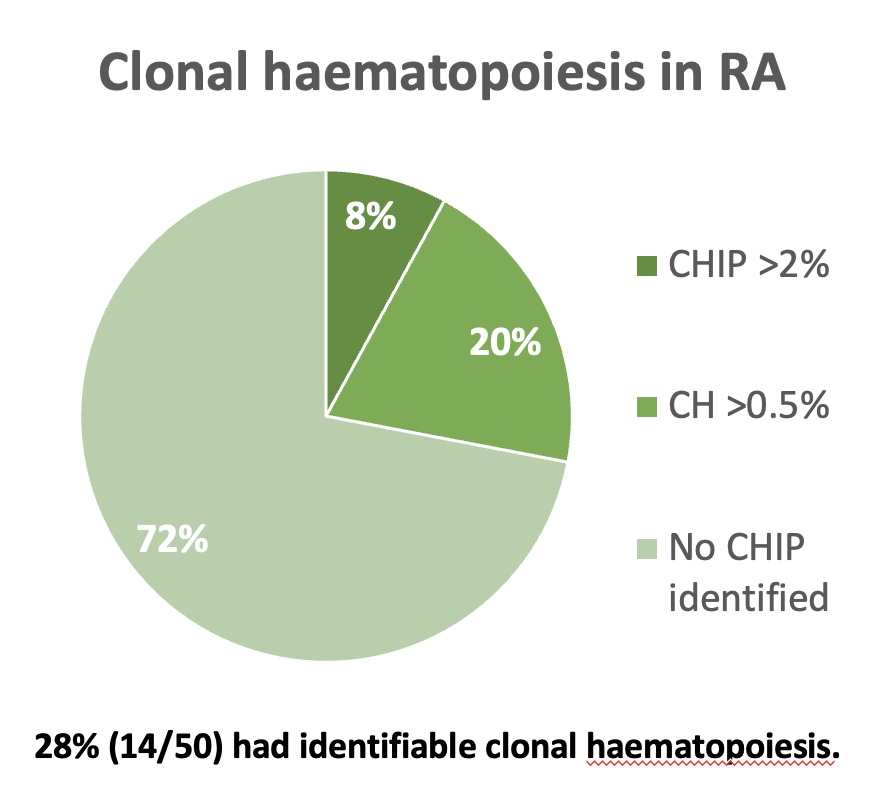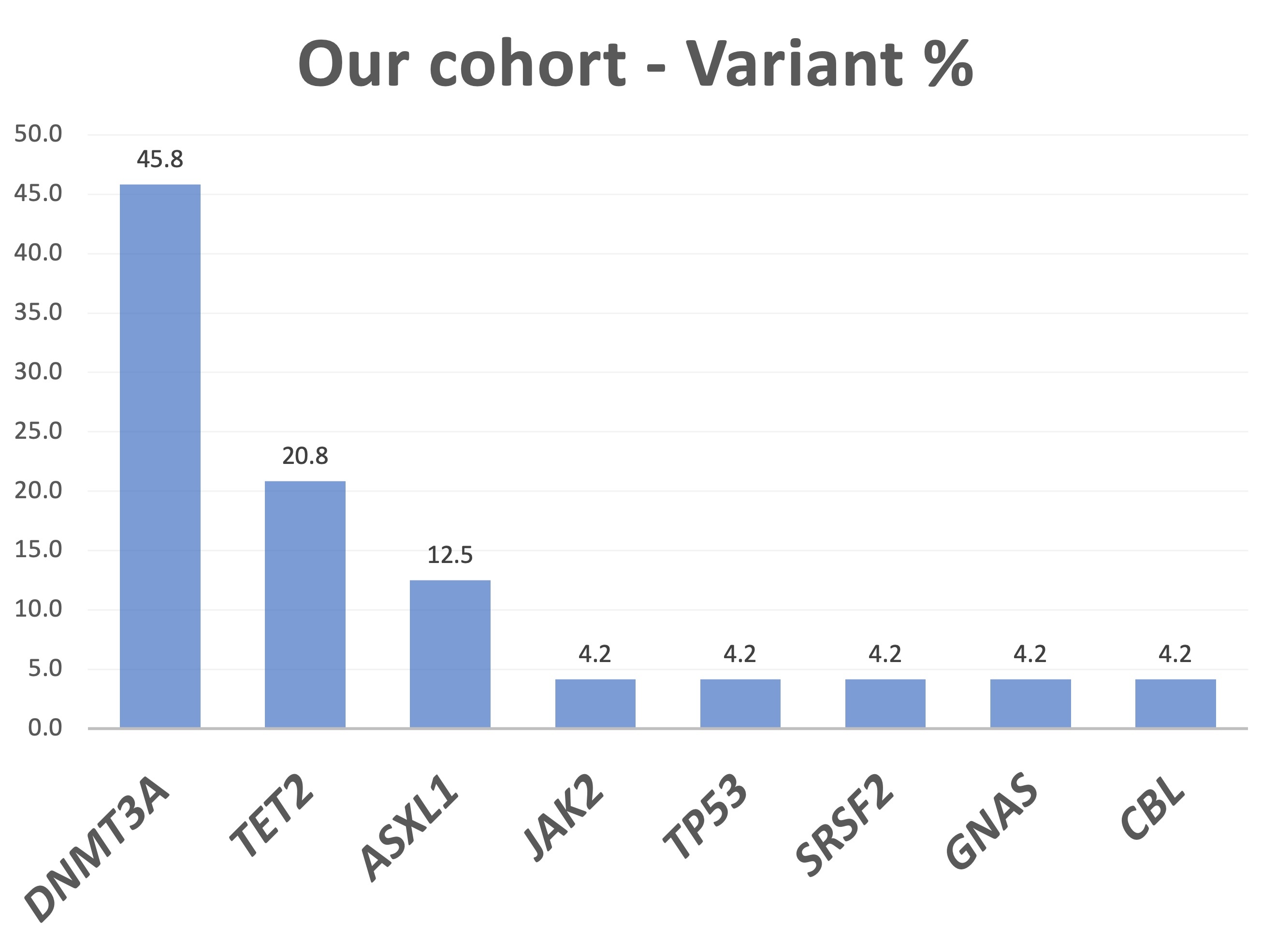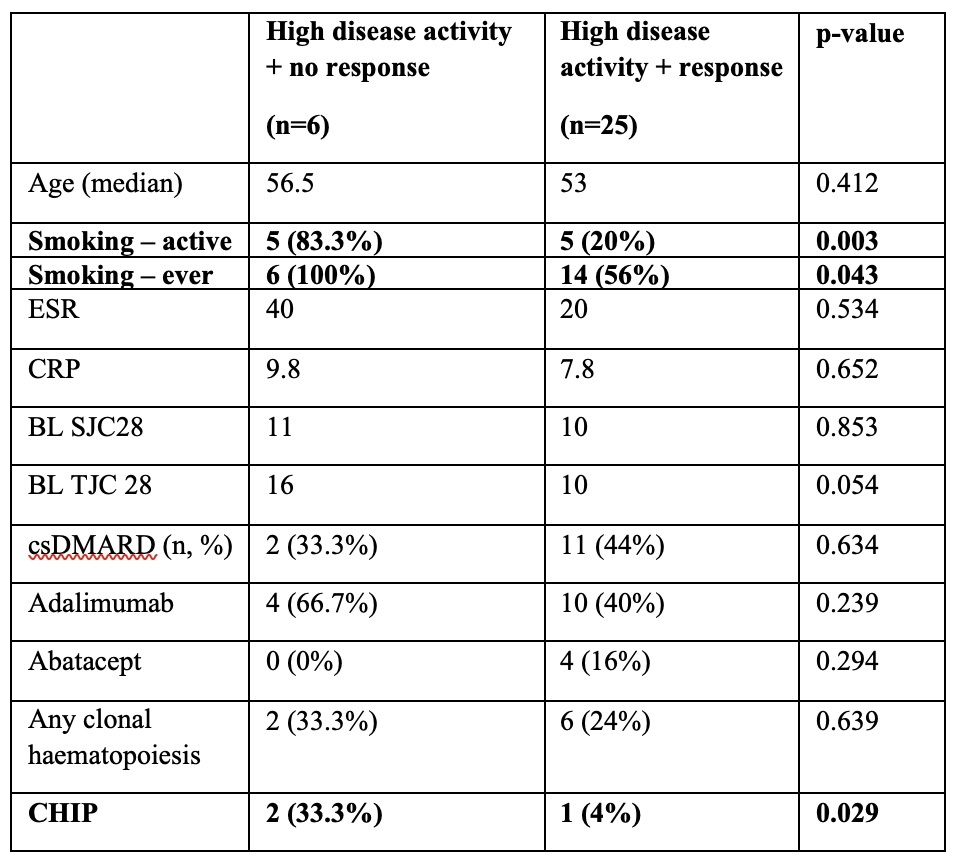Session Information
Session Type: Poster Session A
Session Time: 10:30AM-12:30PM
Background/Purpose: Clonal haematopoiesis (CH) of indeterminate potential (CHIP) is defined as the detection of recurrent somatic mutations in genes that are known to drive haematological malignancies (such as DNMT3A, TET2, ASXL1), at a variant allele frequency (VAF) of >2%, in individuals without haematological abnormalities. CHIP is associated with increased risk of haematological malignancy and cardiovascular morbidity. Notably, CH can provide selective fitness advantage to haematopoietic stem cells under the stress of chronic inflammation. We hypothesised that the chronic inflammatory microenvironment in rheumatoid arthritis (RA) provides selective advantage to haematopoietic stem cells, engendering CH. We therefore evaluated the prevalence and pattern of CHIP in RA and its relationship with disease activity (DA).
Methods: DNA was extracted from the peripheral blood of 50 patients presenting with recent onset RA (baseline) and was analysed with next generation sequencing, utilising a custom-designed myeloid gene panel for genes commonly associated with CH. Correlation between CH, patient demographics and disease parameters were then performed with Mann-Whitney U and chi-square tests.
Results: 20% (10/50) and 8% (4/50) RA patients harboured somatic mutations with VAF >0.5% and 2%, respectively. Patients >60yo were more likely to have CHIP (58.3% vs 18.4%; p=0.007) and VAF >2% (16.7% vs 5.3%; p=0.2). The prevalence in the >60yo group was significantly higher than the reported frequency of 5.6% in healthy controls. Furthermore, 10% (5/50) of RA patients had ≥1 variants.
The majority of 24 discrete pathogenic variants (VAF >0.5%) involved DNMT3A (45.8%), TET2 (20.8%) and ASXL1 (12.5%). Importantly, mutations associated with high risk of progression to myeloid malignancy (TP53, SRSF2 and JAK2) were detected. Baseline high DAS28 was associated with a higher frequency of CHIP mutations compared to low DAS28 (9.7% vs 5.3%; p=0.6). Those with high baseline DA and CHIP mutations were less likely to respond to therapy: 66.7% (2/3) of this group were classified as non-responders (DAS28 at 6months) vs. only 17.4% (4/23) without CHIP mutation VAF >2% (p=0.02).
Conclusion: Patients with RA have increased prevalence of CHIP, and are associated with high DA and poor response to therapy. Considering the potential risk of further clonal expansion in inflammatory states such as RA, our findings warrant prospective studies to further characterise CHIP in this subset of patients.
To cite this abstract in AMA style:
Chin A, Branford S, Small A, Lowe k, Smith m, Kutyna M, King R, Proudman S, Hiwase D, Wechalekar M. Clonal Haematopoiesis of Indeterminate Potential (CHIP) Is Associated with Disease Activity in Rheumatoid Arthritis [abstract]. Arthritis Rheumatol. 2024; 76 (suppl 9). https://acrabstracts.org/abstract/clonal-haematopoiesis-of-indeterminate-potential-chip-is-associated-with-disease-activity-in-rheumatoid-arthritis/. Accessed .« Back to ACR Convergence 2024
ACR Meeting Abstracts - https://acrabstracts.org/abstract/clonal-haematopoiesis-of-indeterminate-potential-chip-is-associated-with-disease-activity-in-rheumatoid-arthritis/



